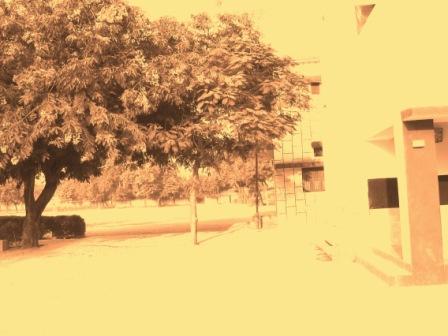I have been translating Urdu poetry to English. But in this case, I wish I could translate from Korean to Urdu. J Rabbit is an indie Korean music duo that created this poignant, mellow, melancholic and yet somehow calming song.
This song featured in a recent Korean drama series (Sachoongi Medeullli or "adolescence/puberty medley" in the English translation - doesn't translate well I think), which also has some more Korean music, such as "Stargirl" (which starts the show, and fits well as the slower background theme music). The dedication that has gone into making such a KBS series is quite impressive - amazing details and visuals- regardless of how one relates to the story...although I believe the characters, events and culture may ring a bell with a South Asian audience. With some patience, the full complexity of the story becomes clear - particularly the details of each character and their development - and it does serve as a window into understanding some aspects of contemporary culture there:
A review (spoilers) with links to all four episodes here.
Tuesday, January 21, 2014
Tuesday, January 07, 2014
Tum Mera Dukh Baant Rahi Ho: Jaun Elia
Tum Mera Dukh Baant Rahi Ho
[By Jaun Elia]
[Translated from the Urdu by Siyaah]
Tum mera dukh baant rahi ho, main dil mein sharminda hoon;
Apne jhootay dukh se tum ko kab tak dukh pohonchaunga...
You are sharing my sorrows – I am, in my heart, ashamed;
Till when, with my false sorrows, will I give you this pain. [1]
You indeed are overcome with fidelity - swirling with desire;
I am mourning the loss of yearning – I will go mad. [2]
Jeet ke mujh ko khush mat hona, main to ek pachhtaawa hoon;
Khounga, kudhtaa hi rahunga, paaunga, pachhtaunga...
Rejoice not in winning me – I am but a regret;
I will lose, sulk forever; I will gain, I will regret. [3]
Ehad-e-rafaaqat theek hai lekin, mujh ko aisa lagtaa hai-
The time of companionship is fine, but I feel:
You indeed will stay with me – I will be left alone. [4]
At dusk sometimes, it is as though the heart is sinking;
Love me not to this extent – I may die. [5]
Let love, on reaching any stage, not be so carefree;
On bed I will now lie - and fall asleep as soon as I
lie. [6]
Translator's Notes:
[1] Dukh: sorrow, grief, pain, affliction, distress. I have used sorrow and also pain to convey the most precise meaning in the context of the poet's lines.
Jhootay dukh: An interesting expression - literally would mean 'false sorrows' and I have kept it as such, but I believe the poet is being self-deprecating and trying to see the insignificance of his sorrows in comparison to something else - that of causing sorrow to another (the one addressed).
[2] Sar-gardaan: 'head whirling around', dizzy, bewildered, confounded. I have used 'overcome with' as it means to overpower or affect deeply and fits better.
Raqsaan: dancing, whirling; I have used swirling as it also captures being dizzy or disoriented...implying lost in something.
Zawaal-e-shauq: zawaal means to lose, decay; shauq means desire, yearning, deep longing, love, taste, zeal etc. The phrase thus means loss-of-yearning.
[4] Ehad-e-rafaaqat: Ehad refers to time, period or phase; rafaaqat means companionship, association, friendship.
Structure: The poem does not follow the structure of the ghazal in that it has no matla (rhyming opening couplet); it is closer to a qita - which, as the poet once pointed out while reciting a different poem- can be of several couplets (not just two couplets as is commonly understood today).
About the poet Jaun Elia:
Poets find you when you need them, or rather when you need their work. I started exploring Jaun Elia in detail sometime last year and felt like a long-starved man who has stumbled upon delicious cake. I find Jaun Elia to be a bewildering, spontaneous, wild and most importantly - original - poet. He may even have been insane, in a way. His voice is unique in terms of its familiarity with classical language and yet its adamant desire to find its own form - often drawing clearly on his own dark experiences of life. At times, such spontaneous styles run into some inconsistency in terms of quality - but Jaun Elia has mostly overcome this and delivered an invaluable corpus of wildly spontaneous work. He seems to write for himself - and perhaps for a selected few others - and this contributes to the heartfelt nature of his poetry, none of which seems 'made up'; this couldn't-care-less approach meant that he only bothered to have his first book published around the age of sixty. More on him in the times to come...
A modern rendition of "Tum Mera Dukh Baant Rahi Ho" by Haidar Iqbal...I quite like this attempt - the style fits the words...haunts you for a while if heard a few times. In addition to classical and semi-classical renditions of Urdu poetry, I think there should be more such modern musical interpretations:
Subscribe to:
Posts (Atom)





